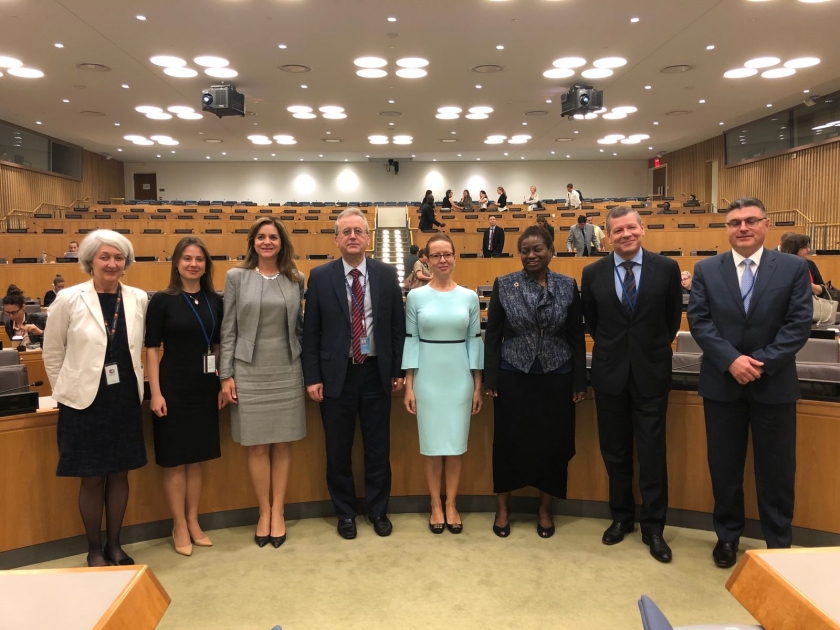Statement by Deputy Permanent Representative of the Russian Federation Mr. Sergey Kononuchenko on the special briefing of UNFPA on Population Dynamics and Sustainable Development in Europe and Central Asia
Madam Armitage,
Executive director Kanem,
Your Excellency Ambassador Kadare,
Ladies and gentlemen,
I thank UNFPA and the PM of Albania for organizing this briefing and for an opportunity to exchange views on such an important aspect of socio-economic development of Europe and Central Asia as population dynamics.
The issues of population are particularly important in the context of the implementation of the ICPD Programme of Action and the Sustainable Development Goals.
The objective of demographic development remains one of the core priorities of the state policy of the Russian Federation. A range of unsolved problems still persist since the crisis of the 90-s. The fertility rate doesn’t fully support the level of population replacement. A disproportionate mortality rate still remains a challenge among persons of working age, especially men. We are also a country with ageing population.
However, several political measures of the Government, such as active support of the family, mother- and childhood, have enabled us to alter the negative demographic trend. The basis for resolving the population problems is stipulated in State Concepts of demographic and migration policies until 2025, as well as national strategies for action in the interests of women and seniors.
We have achieved birth rate growth and mortality rate decrease, which mitigates the confluence of two major demographic collapses of the Second World War and at the end of the last century. The number of newborns in the last decade has increased by 28%, the number of deceased has decreased by 12,9%. Maternal mortality has dropped to 8,3 cases for 100 000 newborns. Life expectancy has hit 71,87 years.
Migration plays a notable role in the demographic development of the modern Russia. The main efforts in this area are concentrated on building civilized environment for legal work migration, defending the rights and freedoms of working migrants and countering illegal migration.
Russia aims to strengthen regional and international cooperation in population matters. We are enhancing our cooperation with the countries of the Eurasian Economic Union (EEU), within which we are forming a common labour market with partners. In particular we’re formulating a common policy for work migration, creating enabling environment for the EEU citizens working in Russia, providing social services, medical support, mutual recognition of service time and transfer of pensions.
Regular coordination meetings are held with the CIS International Statistical Committee. We are actively engaged in annual meetings of officials and experts on population matters in the BRICS format. We have also successfully negotiated a 2020 Agenda for BRICS cooperation on population matters.
We possess a fruitful experience of project implementation in the countries of our region with funds and programmes of the UNDS. They all aim at strengthening national capacities in support of progress on key national priorities of socio-economic development.
I would like to highlight several population projects that Russia is either implementing or has already completed in collaboration with UNFPA.
We have just completed the first phase of a project in Belarus in support of the implementation of national programme for demographic security. Significant progress has been achieved in building national systems for demographic education, modernizing the national system of demographic monitoring. We have established a steady partnership with academia in this field.
In Kyrgyzstan we are working on a project for strengthening national statistical capacities to gather, analyse and disseminate demographic data. The project focuses on creating automated information systems for maintaining registries of the local population and migrants, a database for storing registry archives, supporting population and housing census, updating the information on the size and composition of the population for macroeconomic projections.
We are also about to launch projects to improve access of rural women to reproductive health and strengthen national civil registration and data processing systems in Tajikistan.
Madam moderator,
Ladies and gentlemen,
In conclusion, I would like to emphasize that the Russian Federation is interested in developing diverse international cooperation in the area of demographic policy. We are ready to share our experience and know-hows in overcoming demographic challenges.
Thank you.
